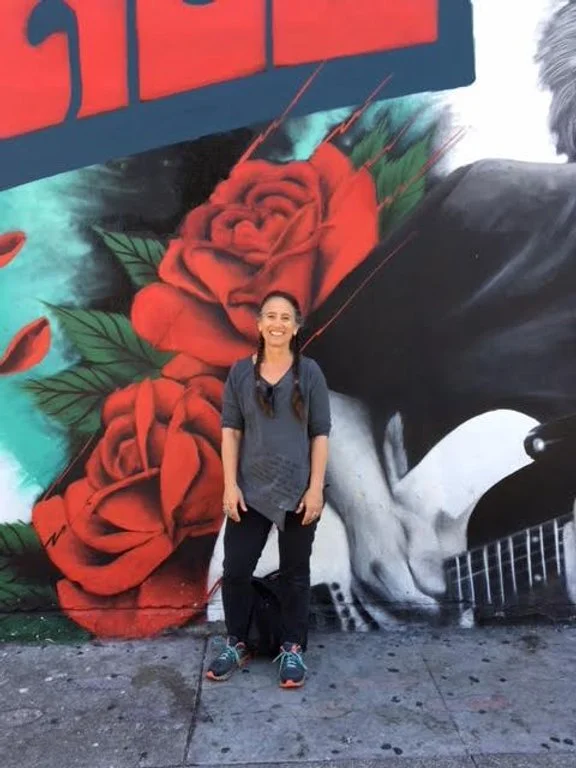Devon Balwit
Devon Balwit teaches in Portland, OR. Her most recent collection is titled A Brief Way to Identify a Body (Ursus Americanus Press). Her individual poems can be found in The Worcester Review, The Cincinnati Review, Tampa Review, Apt (long-form issue), Tule Review, Grist, and Rattle, among others. For more about her reviews, essays, individual poems and collections, see her website at:
Undoing the Hex
How many hours did you seek Narnia
only to find, once in, you weren’t taken
with Aslan, nor with being good,
preferring the petty sadisms of loneliness,
the small tortures of ones sadder, even,
than you? You imagined yourself adopted,
your real parents wealthy, upgrading
a bully’s belligerence for entitlement,
a different parting of the crowd.
Long Sundays, you worked your way
through Lolita, through the porn mags
under the guestroom bed, wondering
which orifice might undo the hex
that kept you beastly, releasing you
from the lost children whose tear-streaked
faces provoked pinches not pity.
The Intransigence of Things
Me, for a moment so proud, the dryer, gutless,
heating element unscrewed, wires dangling,
but that doesn’t fix the problem, leaving
my wash on the lawn to be shat on by crows.
I take it personally, the intransigence of things,
as if they intended to thwart me, already on edge
from life itself. Why break this camel’s back?
Let me plod the paths I know, watering hole
to watering hole. Each setback splits me like
an ice shelf, swamping Vanuatu miles distant,
or ending in my corpse, blackened and bloated,
extracted from stacked junk by paramedics,
an Estate Salesign hammered between weeds.
Forget the breath. No use saying Redux.
Gratitude journals shred to shopping lists.
Best intentions disappear into the junk drawer.
Give me, instead, quiet habit, burying my head
in the next thing, ignorance’s velvet swaddle.
An Unwanted Role Model
(for Morgan Stickney)
When the pain became too great, she let them
take her foot, better maimed than enslaved
to Oxycontin. Pool water is forgiving. One-legged,
she kicks laps preparing for her new dream,
the Para-Olympics. Two years seems
long to suffer. Like me, she must have hoped
something would work, a cure all but promised.
Maddening to be the one for whom claims
fail. How sick one gets of well-
meaning friends and their advice. Yes,
we’ve tried whatever it is. I eye
her stump in the photograph beneath pool-swell.
Could I go that far—I who second-guess
everything? I’m terrified. I won’t lie.
Whatever It Takes
You call everyone else white trash,
all the while catching whiffs of yourself,
the acrid smolder of insure-and-burn,
dump tires lit on bored Saturdays.
Try as you might, you can’t hoity-toity
your way past even the greenest bouncer,
defensiveness like toilet paper stuck
to your shoe. You’ve worked hard
on mimicry, at mastering the sideways
glance, but one barnyard escapee knows
another. I can smell the hick on you,
the long bus rides through field stubble,
to a high school you didn’t graduate from.
Don’t worry. I won’t rat you out. I’m
crashing the same buffet, surreptitiously
filling pockets. Like you, I know the pitch
sloped, everything good rolling to those
who have. We smooth our skirts
tight over thighs and lift our chins,
steeling ourselves for another run-through.
Our Beautiful Brains
(after the drawings of Santiago Ramón y Caja)
What aerialists we are—
even the most timid
hurtling daily
across synaptic clefts
in internal parkour,
pushing off ganglia,
catching and being
caught in tricks
perfected
over millennia.
Leaving the massive
for the minute,
we become our own
Attenboroughs,
narrating each leap,
spidery dendrite
to spidery dendrite
awestruck as intentions
scuttle over glia,
animating Purkinje cells
to lever us into motion.
By our own light,
we explore reefs
of ten billion
pensive flagellates—
electric, foot to crown—
worlds within worlds.
